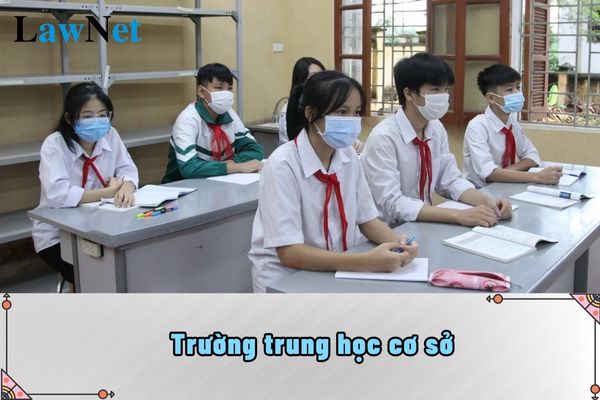Vietnam: What are the regulations on classes in lower secondary schools?
What are the regulations on classes in lower secondary schools in Vietnam?
Under Article 16 of the lower secondary school, upper secondary school and multi-level school charter issued together with Circular 32/2020/TT-BGDDT, the organization of classes at lower secondary schools in Vietnam is specified as follows:
Classes
1. Students shall be divided into classes. Each class shall have a class monitor and deputy class monitors who are self-nominated or introduced by the homeroom teacher and elected by the students of the class at the beginning of each academic year or after each semester. Each class shall be divided into different student teams; and each team shall have a team leader and deputy team leader who are self-nominated or introduced by the homeroom teacher and elected by the team members at the beginning of each academic year or after each semester.
2. Activities in classes shall be carried out in a democratic, autonomous and cooperative manner. Each student shall proactively contribute to development of the operational plans of their team and their class with teacher’s assistance.
3. Chairpersons of provincial People’s Committees shall stipulate number of students in each class with the aim of reducing number of students in one class; ensure that each class at the lower secondary or upper secondary level has a maximum of 45 students.
4. Number of students in each class of a special school is provided for in organizational and operational regulations for special schools.
Thus, according to the above regulations, lower secondary school students shall be divided into classes. Each class shall have a class monitor and deputy class monitors who are self-nominated or introduced by the homeroom teacher and elected by the students of the class at the beginning of each academic year or after each semester.
Each class shall be divided into different student teams; and each team shall have a team leader and deputy team leader who are self-nominated or introduced by the homeroom teacher and elected by the team members at the beginning of each academic year or after each semester.

What are the regulations on classes in lower secondary schools in Vietnam? (Image from the Internet)
Are lower secondary school students in Vietnam required to participate in class activities?
Under Article 34 of the lower secondary school, upper secondary school and multi-level school charter issued together with Circular 32/2020/TT-BGDDT, the duties of students are as follows:
Duties of students
1. Learn and train according to curricula and education plans of their schools.
2. Respect their parents, officials, teachers and staff of their schools, and those older than them; maintain solidarity and mutual support in learning and training; conform to the charter and rules of their schools; and abide by the law.
3. Take exercises and maintain personal hygiene.
4. Participate in group activities of their schools and classes, Ho Chi Minh Young Pioneer Organization and Ho Chi Minh Communist Youth Union; help their families, join physical and social activities and environmental protection activities, and maintain traffic order and safety.
5. Protect school and public property; contribute to fostering, preservation and enhancement of school traditions.
Participation in group activities of their schools and classes is one of the duties of lower secondary school students.
Therefore, lower secondary school students in Vietnam must participate in activities of schools and classes.
What are the rights of lower secondary school students in Vietnam?
Under Article 35 of the lower secondary school, upper secondary school and multi-level school charter issued together with Circular 32/2020/TT-BGDDT, the rights of lower secondary school students are as follows:
- Receive comprehensive education with fairness, be provided with time, facilities, hygiene and safety to learn in class and self-learn at home, be informed of their education and training, and be able to use learning, cultural and sport equipment of their schools as per the law.
- Receive respect, protection and fair and democratic treatment, complain to their schools and education authorities about decisions concerning themselves; transfer school with legitimate reason as per existing regulations; enter school before the compulsory starting age, skip a grade and study at an age higher than the compulsory attendance age according to regulations in Article 33 of Circular 32/2020/TT-BGDDT.
-Participate in activities for development of their gifts in academic subjects, sports and art organized by their schools if able to.
- Students eligible for social benefits, disadvantaged students and gifted students may receive sponsorship or other benefits as per the law.
- Transfer school if eligible according to regulations following school transfer procedures stipulated by the Minister of Education and Training.
- Enjoy other rights as per the law.

